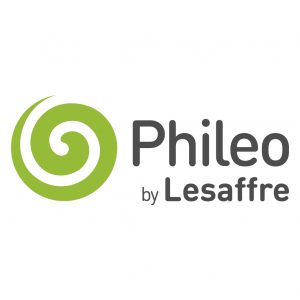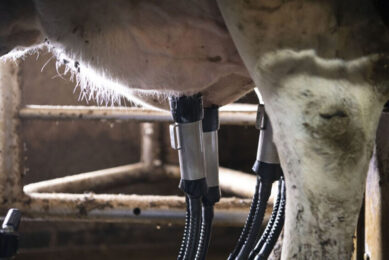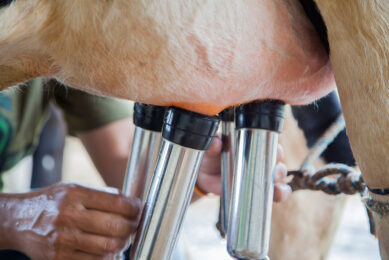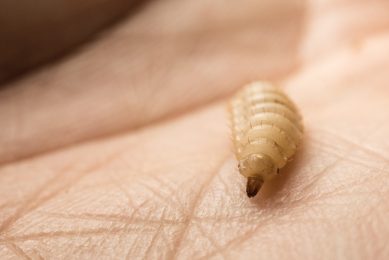From leaky gut to healthy gut in cows under heat stress
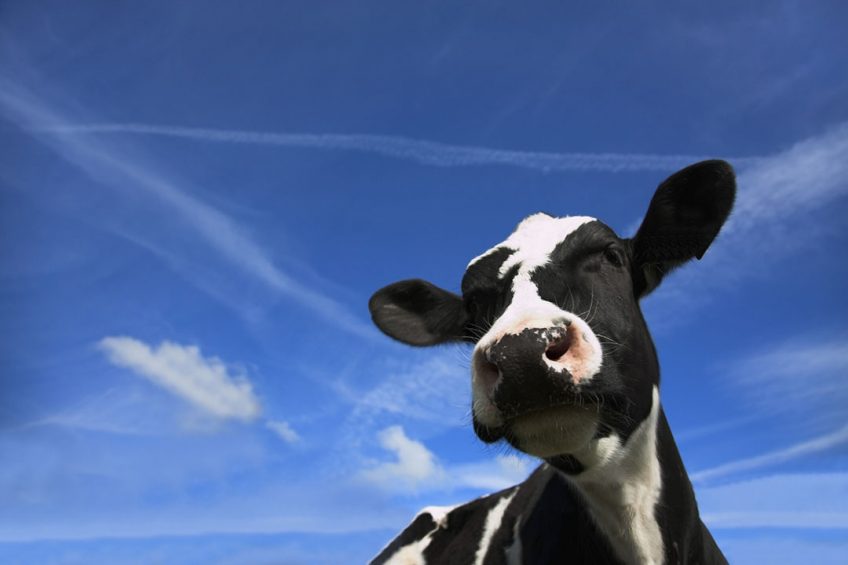
Heat stress has the potential to compromise immunity and intestinal integrity, inducing leaky gut syndrome in many species, including humans. The condition is associated with systemic inflammation and endotoxemia, due to the impairment of the intestinal barrier and LPS (Lipopolysaccharides) translocation.
The gastrointestinal tract (GIT) is most affected by heat stress, due to being exceptionally sensitive to hypoxia and nutrition depletion. This is caused by the blood flow being directed towards the peripheral blood vessels to remove heat from the body. The reduction of blood flow in the intestinal epithelium decreases the supply of oxygen and nutrients. This causes ischemia, leading to cell disfunction and a decrease of the tight junction function, allowing endotoxins, such as LPS and bacteria, to pass through the intestinal barrier into the blood stream (Figure 1). Ruminants are particularly sensitive to the effects of heat stress due to their intense metabolic heat production.
Figure 1 – Effect of heat stress on intestinal integrity and LPS translocation.
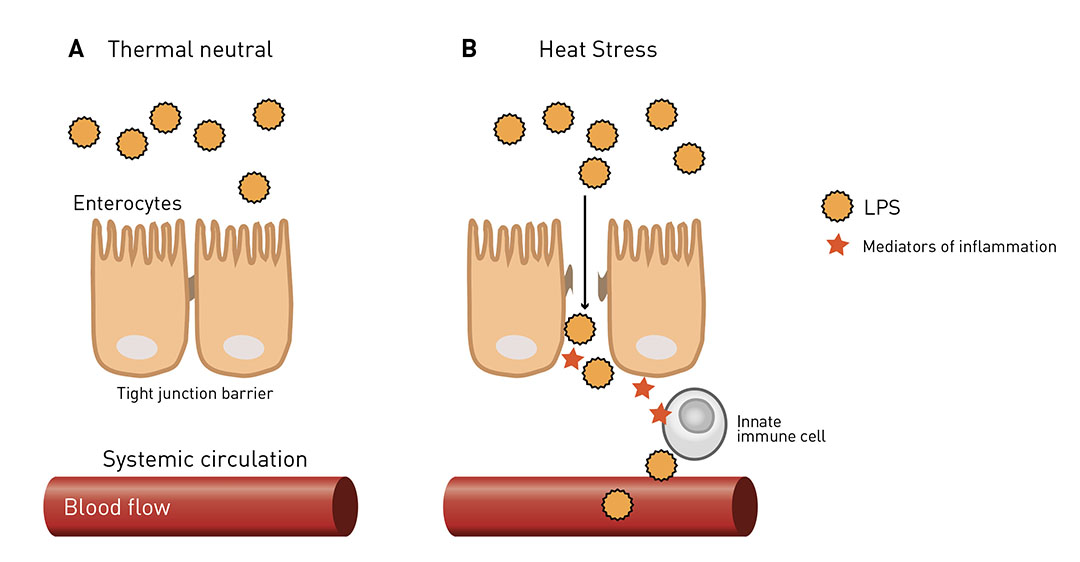
Reducing LPS translocation
Supplementing the yeast probiotic Actisaf Sc 47 and the yeast postbiotic Safmannan in the diets of dairy cows under heat stress may reduce LPS translocation and strengthen the tight junction barrier, so mitigating inflammation and endotoxemia as associated with heat stress. One of the positive impacts of these yeast solutions is the exceptional ability of Actisaf Sc 47 and Safmannan combination to inhibit the growth of some pathogenic bacteria, such as E. coli, Salmonella and Listeria (in vitro data) (Figure 2).
Figure 2 – Effect of Actisaf Sc 47 and Safmannan on the growth of some pathogenic bacteria.

Lowering stress and inflammation in cows
Actisaf Sc 47 and Safmannan supplementation is also associated with lower stress and inflammation in ruminants under heat stress. In one study, newly relocated calves, faced with heat stress conditions, were additionally challenged with LPS to mimic systemic inflammation, such as leaky gut. Animals given Actisaf Sc 47 and Safmannan responded by displaying lower rectal temperature, lower cortisol level, and better overall health (Figure 3).
Figure 3 – Actisaf Sc 47 and Safmannan reduces rectal temperature (A) and stress hormone levels (B) during heat stress and LPS challenge.
(A)
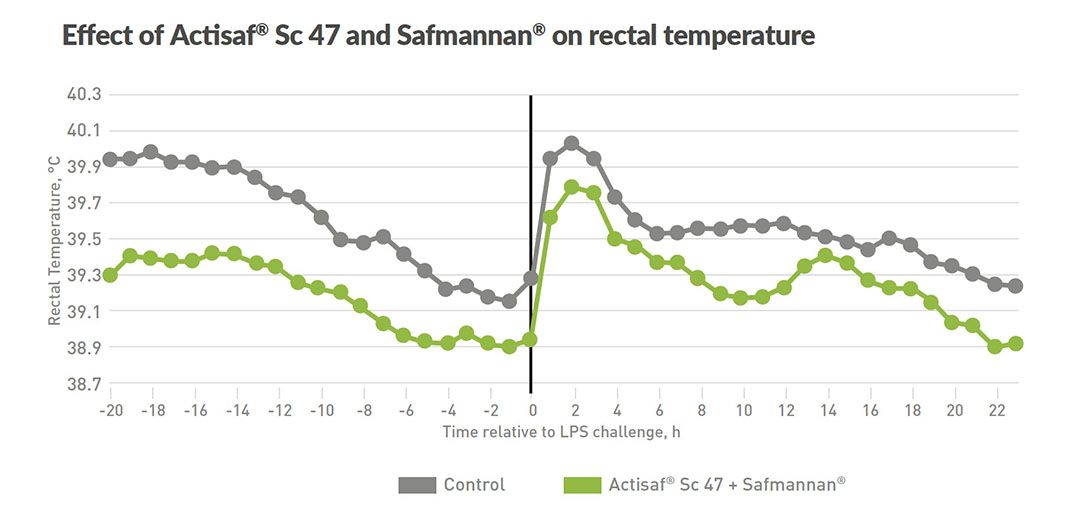
(B)
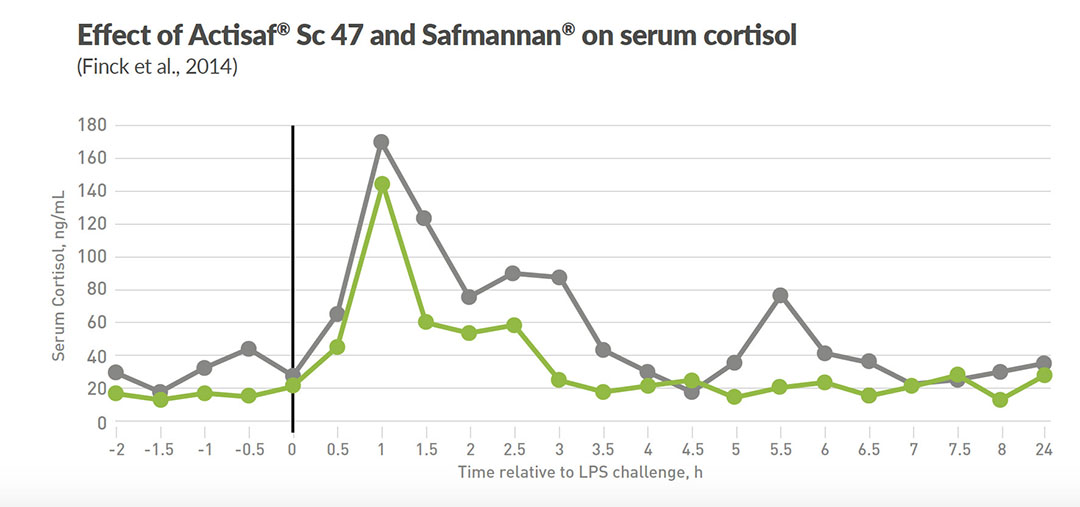
(Finck et al., 2014)
Improving animal welfare and performance
Supplementation with the yeast probiotic Actisaf Sc 47 and the yeast postbiotic Safmannan reduces rectal temperature and serum cortisol in newly relocated calves under heat stress conditions and an LPS challenge. These factors reflect an improvement in animal welfare, alongside enhanced performance.
References available on request


